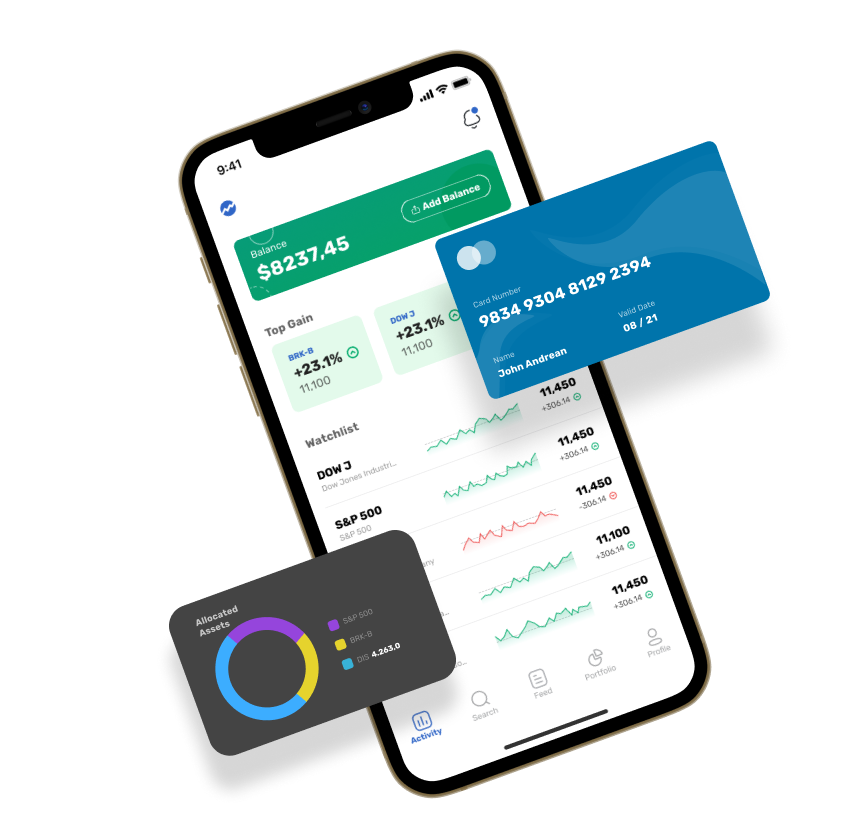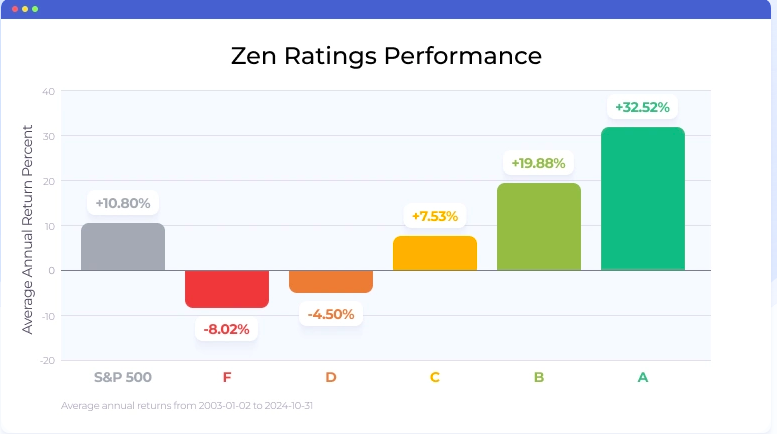20 Top Reasons For Picking AI Stock Prediction Websites
20 Top Reasons For Picking AI Stock Prediction Websites
Blog Article
Top 10 Suggestions For Evaluating The Integration Of Ai Analyzing/Predicting Stocks Trading Platforms
AI stock trading platforms that can predict and analyze stocks based on AI must have compatibility with one another. An integrated platform that is seamless with your existing tools, systems, and workflows will significantly increase efficiency and productivity. Below are the top ten suggestions to assess compatibility and integration.
1. Check Brokerage Integration
Supported brokers: Ensure the platform is compatible with the brokerage you prefer account, or trading account.
Trade Execution: Check if the platform permits direct execution of trades by the broker integrated.
Account synchronization: Check that the platform is able to connect in real time to your account balances and positions and transaction history.
2. Check the availability of APIs
API access: Check whether the platform offers an API available to developers who are looking to automatize workflows or build custom tools.
API documentation: Ensure that the API includes clear examples and examples of use.
Rate limits: Verify whether the API has acceptable rate limits and can handle your expected use.
3. Verify the Integrity of Third-Party Tools
Popular tools: Check if your platform is compatible with popular tools like Google Sheets or Excel.
Import and export of data. Make sure your platform can export/import easily from/to other tools.
Extensions/Plugins: Verify the platform's support for extensions and plugins that provide additional functions.
4. Test Compatibility for Operating Systems
Desktop compatibility: Make sure the platform you choose is compatible with Windows, macOS and Linux.
Mobile compatibility: See if the platform offers a mobile app for iOS and Android.
Web-based access: Determine that the platform can be accessible via a web browser to allow for greater flexibility.
5. Evaluation of Data Integrity Capabilities
Data sources: Check whether the platform is compatible with multiple data sources (e.g. market data providers or news feeds).
Real-time data feeds: Verify whether the platform allows real-time data integration for up-to-date analysis.
Import historical data: Check if the platform allows importing historical data for backtesting or for analysis.
6. Cloud and On Premise Compatibility
Cloud-based platforms: the platform must be available from anywhere with internet connectivity.
On-premise solutions. If you're interested in on-premise deployments, check if your platform supports it.
Hybrid alternatives: Find out whether the platform supports the option of a hybrid model, which combines cloud capabilities and on-premise ones.
7. Look for Cross Platform Syncronization
Device synchronization - Ensure that the platform syncs settings and data across all devices (desktops and mobiles).
Verify the real-time update to see whether any changes made by one device will reflect instantly on the other.
Offline access: Check whether the platform supports limited functionality or data access in offline mode.
8. Assess the Compatibility of Trading Strategies
Algorithmic or automated trading: Verify that the trading platform supports these strategies.
Custom indicators - Check to see if the platform permits the use of customized scripts and technical indicators.
Backtesting strategies: Find out if the platform supports backtesting strategies for trading using historical data.
9. Assess Security and Compliance
Data encryption: Verify that the platform utilizes encryption of data in the stationary and while in transit.
Validation: Find out if the platform offers safe authentication methods for example, two-factor authentication.
Regulative Compliance: Determine if your platform complies with relevant regulations.
10. Test Scalability Performance
Scalability is crucial. The platform should be able to handle the increasing amount of data, and numbers of users.
Performance during load conditions: Check whether the platform continues to be active during times of high volatility in the market.
Resource usage: Determine whether your system is using the resources of its system (CPU/memory and bandwidth) efficiently.
Bonus Tips
Feedback from users: Search for testimonials and reviews from users when you are evaluating the platform.
Trial period: Try the platform free of charge or download a demo and test how it works with your current tools and workflows.
Customer support: Ensure the platform provides a solid support for integration-related issues.
You can evaluate the compatibility, integration and efficiency of AI stock trading platforms by following these guidelines. Have a look at the best the full details on ai trading for site tips including AI stock market, AI stock trading app, AI stock picker, ai investment app, ai investing platform, ai for investment, ai investing platform, trading with ai, ai for trading, AI stock trading and more.
Top 10 Tips For Evaluating The Regulatory Conformity Of Ai Stock Prediction/Analyzing Trading Platforms
Regulation compliance is a key factor in evaluating AI-based trading platforms. Compliance is essential since it ensures that the platform complies with rules and legal frameworks. It also safeguards users' personal information. These are the top 10 guidelines for assessing the regulatory compliance of these platforms:
1. Verify that you have a valid license and registered
Regulators: Make sure the license and registration is with the appropriate financial regulators (e.g. SEC or FCA in the United States, ASIC or ASIC in Australia).
Broker partnerships: If the platform is integrated with brokers, verify that brokers are properly licensed and regulated.
Public records: Go to the website of the regulator to see the status of registration, as well as previous violations.
2. Assess the privacy of your data Compliance
GDPR: If your business is located in or serving users in the EU make sure the platform complies with the General Data Protection Regulation (GDPR).
CCPA -- California Consumer Privacy Act: Verify compliance for California users.
Data handling policies. Check the privacy policy to ensure it clarifies the manner in which user data is collected, shared, and stored.
3. Review the Anti-Money Laundering(AML) measures
AML policies: Ensure that your platform is armed with a robust AML policy that can detect and prevent any money laundering.
KYC procedures: Verify whether the platform is following Know Your Customer (KYC) procedures for verifying user identities.
Check the platform's transaction monitoring. Does it monitor transactions and report any suspicious activity to authorities?
4. Check for Compliance with Trading Regulations
Market manipulation: Make sure the platform is armed with measures to prevent market manipulation such as washing trading or the spoofing.
Types of orders. Check that the platform complies with all rules regarding order type (e.g. there's no stop loss hunting that is illegal).
Best execution: Check to determine if the platform follows the best execution practices which guarantees that trades will be executed at the lowest possible cost.
5. Cybersecurity Assessment
Data encryption: Make sure the platform uses encryption to protect user data in transit and at rest.
Response to incidents. Verify whether the platform has a plan of action to handle cybersecurity breaches and data breaches.
Certifications: Make sure the platform holds cybersecurity certifications (e.g., ISO 27001, SOC 2).
6. Transparency and Disclosure
Disclosure of fees: Ensure that the platform discloses all charges that are hidden, as well as any extra fees.
Risk disclosure: See if there are clear disclosures of risk, particularly in high-risk or leveraged trading strategies.
Performance reporting: Make sure the AI platform is transparent and provides accurate performance data for its AI model.
7. Check for the conformity to International Regulations
Cross-border trading When you conduct business internationally, ensure the platform complies with rules in all the jurisdictions relevant to you.
Tax reporting: Check whether the platform offers tools or reports to aid users in complying with tax laws (e.g., FIFO rules in the U.S.).
Compliance with sanctions: Ensure that the platform complies with international sanctions and does not allow trading with banned entities or countries.
8. Assess Record-Keeping & Audit Trails
Transaction records: Make sure that the platform maintains precise records for purposes of regulatory and for audit.
Records of activity by users: Determine whether the platform records users' activities, such as logins or transactions as well as changes to the settings for your account.
Audit readiness: Ensure the platform has all the documentation and logs necessary to be able to pass a review by a regulator.
9. Make sure you are in compliance with AI-specific Regulations
Algorithmic trading regulations: If a platform allows algorithmic trading, be sure that it's in compliance with regulations such as MiFID II in Europe or Reg SCI in the U.S.
Fairness and bias: Check whether the platform is able to monitor and corrects biases within its AI models to ensure fair and ethical trading.
Explainability: As required by certain regulations, the platform should be able to provide clear explanations for AI-driven predictions and decisions.
Examine the User's Feedback and Regulatory Histories
User reviews: Conduct research to evaluate the credibility of the platform for legal compliance.
History of regulation: Determine whether the platform has any past history of violations by the regulatory authorities such as fines, penalties, or sanctions.
Third-party checks: Ensure the platform's compliance with the regulations by determining whether it has periodic audits from third party.
Bonus Tips
Legal consultation: Consult an expert in the field to verify if your platform is compliant with regulations.
Trial period. You can use the trial or demo of the platform to try out the compliance features of the platform.
Customer support: Check whether the platform is able to provide assistance to customers who have questions or concerns related to compliance.
With these guidelines using these tips, you will be able to identify the level of regulatory compliance between AI stock trading platforms. This will allow you to choose a platform operating within legal frameworks that safeguards your interests. Compliance does not just help lower legal risks, but can also increase trust in the platform. See the most popular killer deal for investing with ai for website examples including ai software stocks, stock trading ai, ai options, can ai predict stock market, free AI stock picker, ai trading tool, ai share trading, best ai penny stocks, best AI stock prediction, ai tools for trading and more.